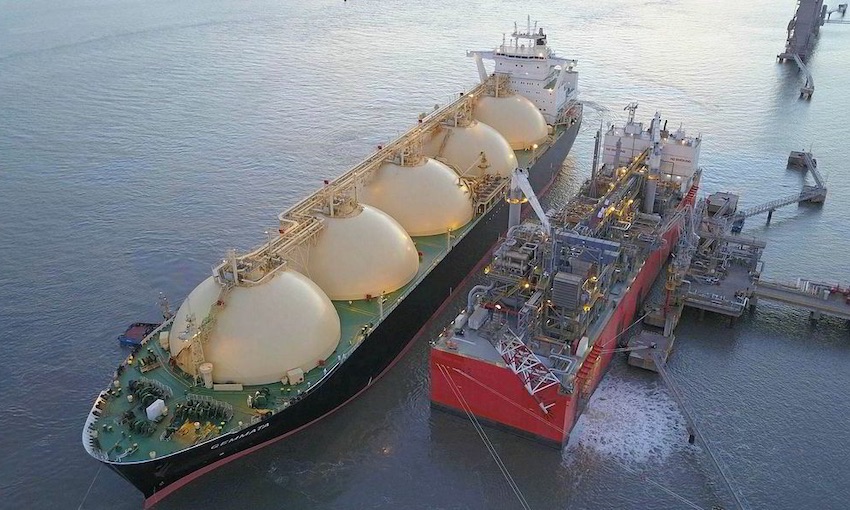ACCORDING to Energy Quest’s monthly Australian LNG report for September, the biggest impact of COVID-19 and the fall in oil prices on the market for liquefied natural gas has been on revenues.
“Lower oil and LNG spot prices are continuing to have a significant effect on Australian LNG revenues with revenues now seeing the bottom of the oil price fall in June,” the report states.
LNG revenues in August (the latest data) were $2.1bn, well down from $4.4bn reached in March prior to the drop in oil prices. In the eight months to August this year total revenue was $27.4bn, down $5.1bn or 15.7% from 2019.
Australian LNG shipments in September were lower compared with August, primarily due to decreased production at the North West Shelf and Gorgon projects.
Australian projects shipped 6.2m tonnes (91 cargoes) in September, compared with 6.6m tonnes (96 cargoes) in August. The monthly record for shipments was 7.1m tonnes in December 2019.
Shipments in the six months from April, the start of COVID-19, are 37.9m tonnes, down by 3.8% from the same period last year.
“The pandemic and flat LNG market has clearly had some impact on LNG exports. While total Chinese LNG demand has grown, demand from Japan and Korea is down, leading to extended maintenance at some LNG projects,” the report stated.
“In a total context though a decline of 3.8% is modest given the impact of COVID-19 on importing countries and the complexities of LNG production and shipping during a pandemic.”
Due to good production performance in the first quarter, LNG export volumes are running in line with 2019. In the nine months to September Australia exported 57.7m tonnes, just slightly more than 57.4m tonnes exported in the same period last year.
Cargo delays began to subside during September and delay times were reduced compared to those seen over the last few months. EnergyQuest estimates 20 Australian cargoes loaded during September have been delayed awaiting final destination orders during September, after 35 in August were delayed and 21 in July. Eight of the delayed cargoes were loaded at the North West Shelf project.
Deliveries to major North Asian markets were higher in September compared with September 2019. Australian projects delivered a total of 84 cargoes to China, Japan and Korea in September, up from 82 cargoes a year earlier. There were two more deliveries to Korea and three more deliveries to China, while there were three fewer deliveries to Japan compared to September 2019.
Domestic electricity generation continues to be largely unaffected by restrictions caused by COVID-19. East coast generation was only down by 3% in September compared with a year earlier.
East coast gas-use for generation was well down, by 9.15 PJ (-58%) on a year earlier and 5.86 PJ lower compared with August, being replaced by solar and wind generation.
“Gas-use for generation of 6.7 PJ was the lowest since our monthly records commenced in July 2017,” the report stated.

